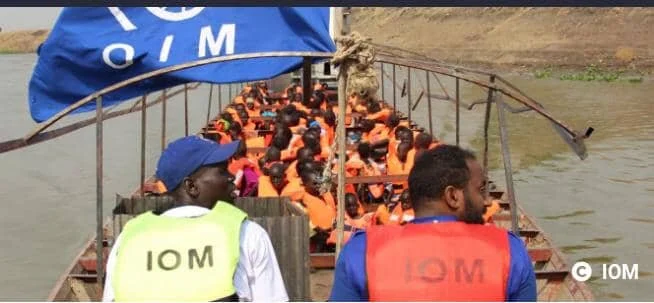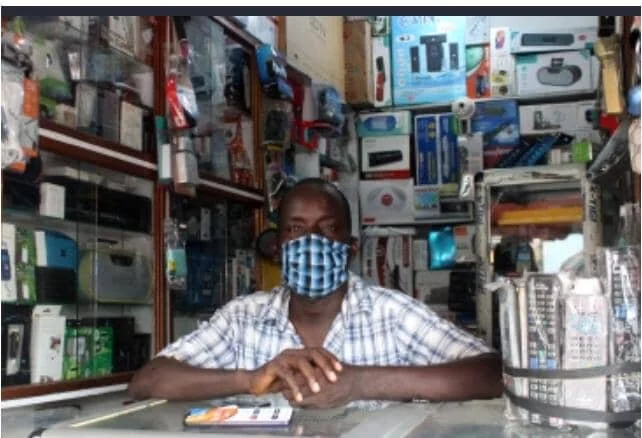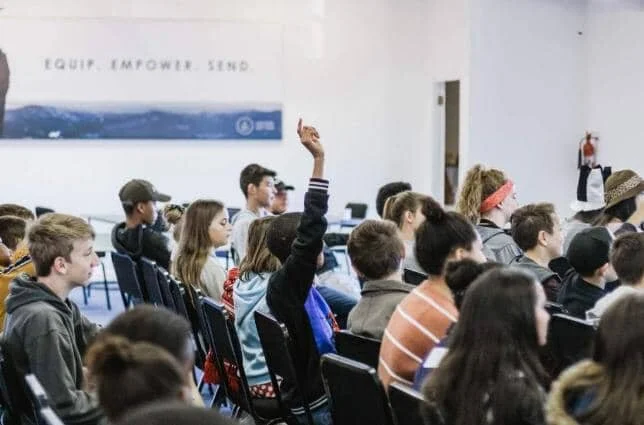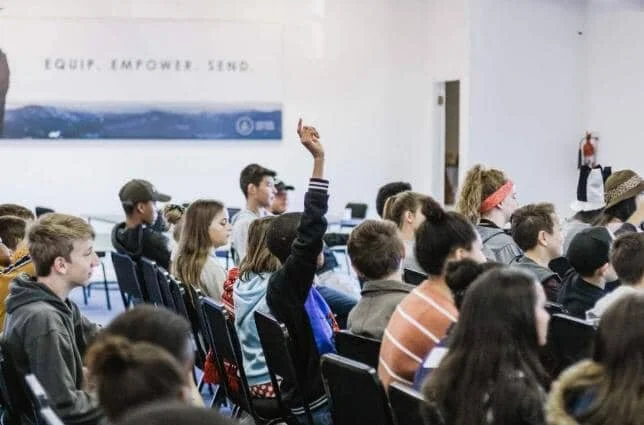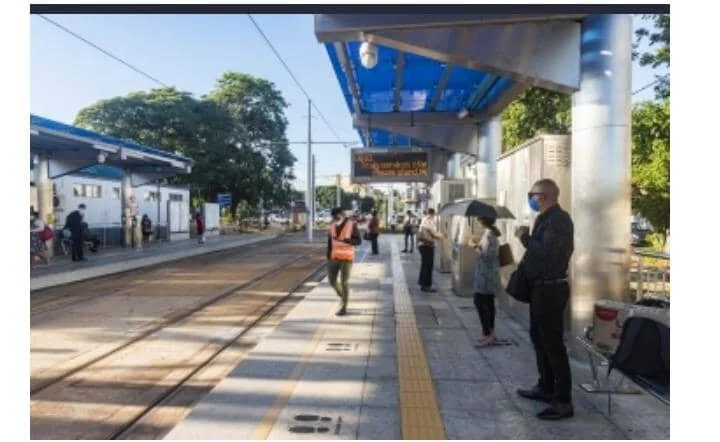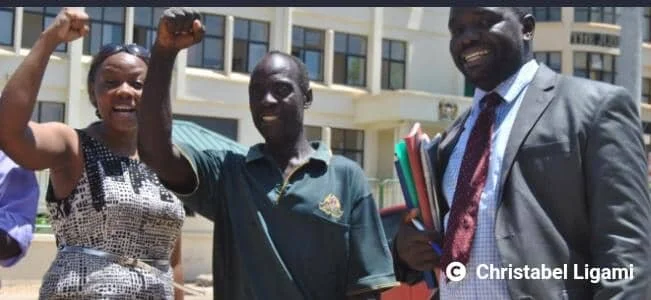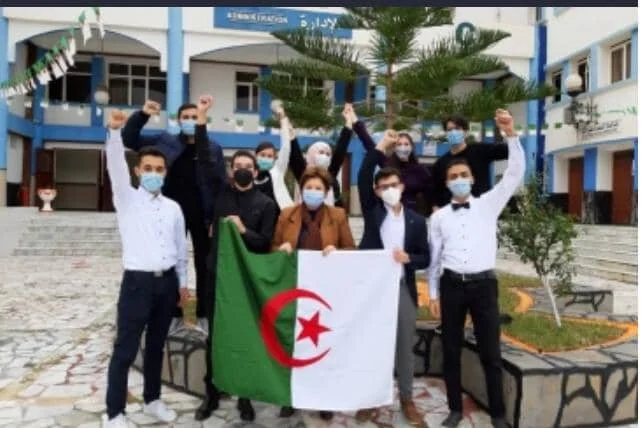It has been an honor to serve Africa’s youth as the first African Union Special Envoy on Youth for the past two years and to engage thousands of youth from around the continent and the diaspora, visit countless cities and communities to learn from brave and passionate young people, listen to their stories of agency and hope and explore how the AU can better support their crucial work. These are young people that I shared a cup of tea with at the many youth engagements, we cried together at the struggles we went through, we laughed and danced together, we shaped the Office of the Youth Envoy (OYE) into what it has become today, by “Shaking Things Up”.
Migration Amid COVID-19: Young Africans Weigh Their Options
While the African migration narrative may be dominated by desperate youth involved in irregular migration, the near-term impact of the COVID-19 pandemic on them has also increased the migration of certain groups, especially those with skills useful in the health sector of destination countries. Increasingly, migration for work or education has become a common phenomenon in Africa. Data from the International Migrant Stock 2019 report, prepared by the UN Department of Economic and Social Affairs (DESA), shows that international migrants in 2019 numbered an estimated 272 million, an increase of 51 million since 2010.
AfCFTA: How Intellectual Property Laws Can Help Create Jobs
The Agreement establishing the African Continental Free Trade Area (AfCFTA) is ambitious. Bringing together 55 African Union member states, it will form the world’s largest free trade area by the number of participating countries. The Agreement covers trade in goods and services, investment, intellectual property rights and competition policy. The Phase II negotiations of the agreement hold many opportunities, particularly for Intellectual Property (IP). A strong IP regime across the continent will facilitate the growth of MSMEs and will lead to increased job creation especially for women and the youth.
Global Youth Forum 2020: Day 1
The 8th Global Youth Forum was held online via Zoom on 24-25 October 2020, assembling 36 participants from 18 different countries. The main subject Acting on the Earth Charter allowed a rich exchange between young people and experienced professors, creating solutions and sharing awareness about several risks we are facing as a community, like the climate crises or social disparities.
Global Youth Forum 2020: Day 2
The second day of the youth forum was introduced by Dr. Roberto Savio, Director of ECPD International Relations, prominent journalist and publisher of The Other News - Voices against the tide. Dr. Savio outlined that we are living in a time of transition, a time where globalization has become the main economic engine, where capitalism defines the new liberalism, and that it is time for us to rethink our neoliberal capitalist development model, due to its many negative outcomes. Globalization reinforces the gap between rich and poor.
Social, Environmental Factors Seen Behind Africa’s Low COVID-19 Cases
The pandemic has largely been in a younger age group and has been more pronounced in a few countries, suggesting country-specific aspects are driving the pattern of disease and death. COVID-19 transmission in Africa has been marked by relatively fewer infections, which have been on the decline over the past months, owing to a variety of socio-ecological factors as well as early and strong public health measures taken by governments across the region.
Why AU Should Push For Equitable Access To COVID-19 Vaccines
The first initiative is the COVAX Facility, a global initiative that brings together governments and manufacturers to ensure that COVID-19 vaccines reach those in greatest need. This initiative has the potential to benefit African countries if it succeeds in getting sufficient vaccine supplies at affordable prices that minimize debt. The proposed waiver would allow all countries globally to collaborate on the COVID-19 response, including vaccine development and distribution, without being unduly hampered by the complexity of laws and restrictions governing intellectual property.
Community Health Workers: The Unsung Heroes In Africa’s COVID-19 Response
The WHO defines Community Health Workers (CHWs) as lay people who live in the communities they serve and who function as a critical link between those communities and the primary-healthcare system. In Africa, they provide low-cost interventions for common maternal and pediatric health problems such as pneumonia, diarrhea, undernutrition, malaria, HIV, measles and now COVID-19. They also assist with immunization.
Kenyan Coastal Community Defeats Lead Polluter In Court
It was touted locally as one of the biggest campaigns of the decade when, in 2016, Kenyan environmentalist Phyllis Omido took up the fight against lead poisoning by a lead-acid batteries recycling smelter in Owino Uhuru slum, in the coastal city Mombasa. Ms. Omido, who led a campaign to close the smelting factory in 2014, worked through CJGEA to bring the case to court in 2016, seeking compensation and justice for those affected by the lead poisoning in the Owino Uhuru slum after several failed attempts to negotiate and settle with the government and other entities involved.
Shedding Light On The Hopes And Challenges Of Algerian Youth
Injaz(Arabic for achievement) is patterned after a US-based youth organization, Junior Achievement, which operates in many African countries, including Ghana, Nigeria, Tanzania, as well as in other regions of the world. Ms. Jaber, the Jordanian-born executive who now lives in Algeria, wanted to offer young people in Africa the opportunity to develop their business leadership skills, including business planning, critical thinking, and effective communication.



